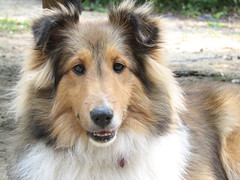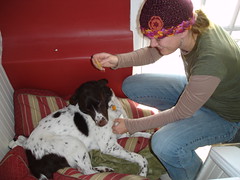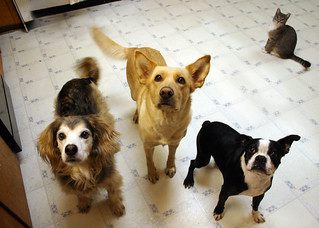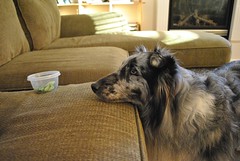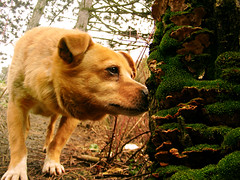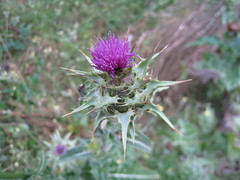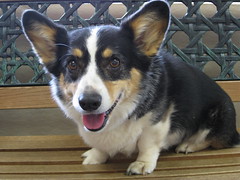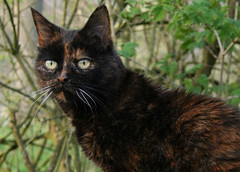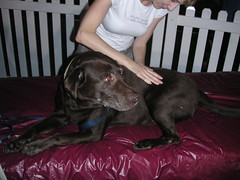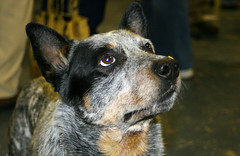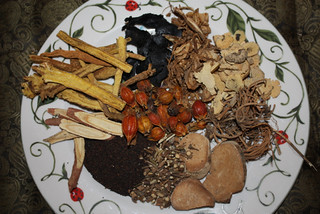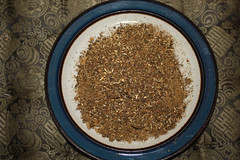Hemangiosarcoma of the heart in dogs – holistic options
Thursday, April 18th, 2013 While I use a similar protocol for heart hemangiosarcoma to splenic hemangiosarcoma, there are some differences.
While I use a similar protocol for heart hemangiosarcoma to splenic hemangiosarcoma, there are some differences.
One is that surgery is not an option for hemangiosarcoma of the heart. Second is that we have a tumor that is pushing against one of the most vital organs in the body. While bleed out is a concern, animals with hemangiosarcoma of the heart are more likely to die from heart failure. Really with this cancer we are buying time and improving quality of life with treating holistically. This is one of the fastest moving cancers out there.
So we need a three fold approach, slow the cancer, support the heart and prevent bleeding.
Here is my modified protocol
- Acupuncture – every two weeks or more often. This keeps everything moving, helps with discomfort, slows down the cancer and boosts the immune system. Acupuncture can also support the heart and keep blood pressure regulated.
- A cancer diet – See Diets for cancer in cats and dogs
- Yunnan Baiyao – not only does it control bleeding but also seems to slow this cancer down.
- Xiao Chai Hu Tang This formula works well for cancers that cause there is be an excess in the front of the body. All these formulas are available from my etsy store Kingdom of Basil. If you get this formula from another source make sure that these formulas uses ginseng (Ren Shen) and not Dang Shen and that the Chai Hu is not over 25% of the formula.
- Xue Fu Zhu Yu Tang with E Zhu and San Leng – this formula not only helps fight cancer but also helps support the heart. Also available through Kingdom of Basil.
- High dose Vit A/D given orally. If you give this orally it decreases the chances of an allergic reaction. I use the injectible large animal version but use it orally. I dose once a week for four weeks and then once a month. Steve starts with a dose of twice a week. I use in the range of 250,000IU of Vit A and 37,500IU of Vit D per dose for an average sized dog. DO NOT USE THIS DOSE OF VITAMIN A/D WITHOUT VETERINARY SUPERVISION. Large amounts of Vit A are highly cytotoxic to cancer cells, that is great. The doses I use can potentially cause kidney failure, that is not so great. You must be working for a vet to use this high a dose. Chai Hu Jia Long Gu Mu Li Tang or Xiao Chai Hu Tang also help to protect the kidneys when using this high dose vitamin therapy.
- IP-6 Inositol Hexaphosphate
– this supplement is important in stimulating the immune system’s natural killer cells to destroy cancer tissue. It is an antioxidant and has effects in inhibiting cancer cell growth and division. Not much research has been done in humans with this supplement but a lot of cancer studies have been done in animals.
I dose dogs at 800-1600mg twice a day when I use this supplement. - Coenzyme Q10
– this supplement helps support heart tissue and has anti-cancer effects as well. I often add it to my protocol. I use a dose of 200mg a day for your average sized dog.
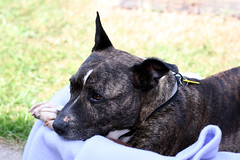 This is not a cancer to take lightly, as it can progress very quickly. If at all possible find a holistic vet to work with.
This is not a cancer to take lightly, as it can progress very quickly. If at all possible find a holistic vet to work with.
As with all advice offered on this website please check in with your animal’s primary veterinarian before using any of these herbals and supplements.
Return to Integrative and Holistic Methods for Treating Cancer in Cats and Dogs


